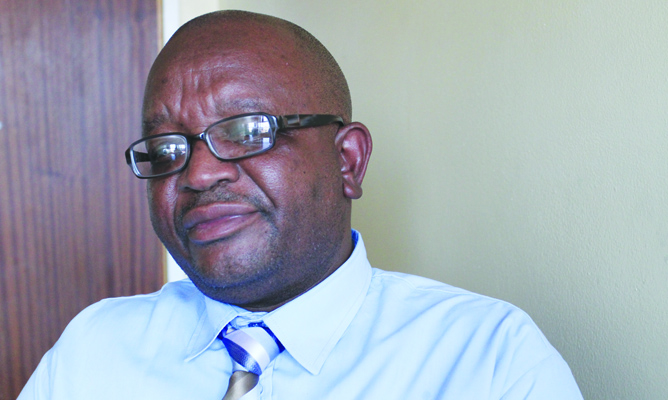
Minister of Media Information and Broadcasting Services Christopher Mushohwe has, commendably, taken time to visit media houses. The minister is right too, in pointing out that the media has influence and must be in responsible hands committed to telling the truth and furthering the interests of the Republic.
The pen, he should know, but perhaps won’t say so loudly, is mightier than the sword.
Expecting “a high sense of professionalism” from the press, as the minister put it, is, therefore, justified. Likewise, the same high display of professionalism is expected from the nation’s intelligence corps and uniformed forces. Professionalism is the tie that binds key national institutions, making them the best of friends. That is usually the case in the West, and is rapidly, with reform, becoming the norm in China.
For that to happen, both the press and the security cluster must be apolitical. Otherwise the institutions risk division on political (partisan and factional) lines as may be the case, currently, in Zimbabwe. Polarised press and partisan state institutions seemed alright to some as long as it was along party lines. Now that events have deteriorated to potentially intra-party factionalism dividing the press as well as the uniformed forces into hostile camps, the dangers of the evil reality is dawning on many. If there is a silver lining to the dark cloud of Zanu PF’s unrestrained factionalism, this is it. It presents an opportunity to depoliticise and thus raise the quality of key national institutions across the board.
The recent reminder to the press, if including State-controlled media, by the Minister of Information, and the reported December 2015 rebuke to the security cluster by its Commander-in-Chief President Robert Mugabe, both against dabbling in politics and factionalism, are testimony of the sad state of affairs. In a multi-party democracy it should be taboo for men and women in uniform to participate in conferences, seminars and congresses of a political party.
In advanced countries, where research has been carried out, politicians and business executives are, by the public, the least trusted groups of “professionals”. With these tainted groups, the security cluster and the press must both sup with long spoons. Since it is said birds of a feather flock together, being embedded in political parties is likely to undermine the image and integrity of uniformed forces as well as the press. The relationship, in both cases, would be unsavoury.
A good number of political parties are known to be rich habitats for the corrupt even in the developed world. As a result, a national institution that hob-knobs with politicians is likely to be compromised. Under such circumstances negative press coverage for the institution is inevitable.
- Chamisa under fire over US$120K donation
- Mavhunga puts DeMbare into Chibuku quarterfinals
- Pension funds bet on Cabora Bassa oilfields
- Councils defy govt fire tender directive
Keep Reading
In his 2016 State of the Union address to the US Congress, President Obama famously said his 2016 priority is fixing the United States’ politics. He felt strongly the future of the super power depended on that. It is a sentiment that applies to Zimbabwe as well. Zimbabwe needs a constructive political landscape in which state institutions and the media are professional in the execution of their mandates. Loyalty should be to the State and the people, and not to political parties.
The common enemy for national institutions and society is likely to be the odd, rogue, reckless, untrustworthy politician. Herr Joseph Goebbels (leader of a rogue media) and his boss Fuhrer Adolf Hitler are notorious examples. Otherwise the press, the ordinary folk, and those entrusted with their security ought to be the best of friends.
If that be the case, there should be nothing “secretive or sacred” about the security establishment, except classified information. Zimbabweans should not know more about the likes of the US, Chinese and British armed forces than they do about their own “boys” and their kit; their combat readiness or indeed the lack of it.
The Chinese proudly displayed their new Russian supplied aircraft carrier in 2015. The Russians showed off their latest, state-of-the-art, unmanned main battle tank at a parade attended by President Mugabe in 2015, and also “leaked” to the press their latest ballistic missile submarine’s pictures. The Americans have gone further, writing a book and making a film of the exploits of their deadly snipers in Iraq.
Likewise, the Zimbabwe National Army should show off its latest troop carriers or light tactical vehicles. Too much secrecy, including on pricing, may be mistaken for camouflaging a corrupt deal. It invites adverse press.
The challenge to the Information ministry is to spruce up the image of the security cluster. The test of success is simple; the public should feel safer and happier when uniformed forces are around as happens in any civilised society.
In 2009, on an Air Zimbabwean flight from South Africa’s OR Tambo Airport, I sat next to a Zimbabwean lady, whose family is based in Houston, Texas. She recounted how on boarding the Houston to New York flight, two US soldiers on their way to battle in Afghanistan were introduced by the captain of the flight to all his passengers. She was stunned by the ovation the soldiers received from their fellow passengers regardless of whether they supported the war in Afghanistan or not; regardless of whether they were Democrats or Republicans. When it comes to the welfare of their security cluster the Americans (including their media) close ranks. That is how it should be.
l Tapiwa Nyandoro can be contacted on [email protected] or [email protected]












